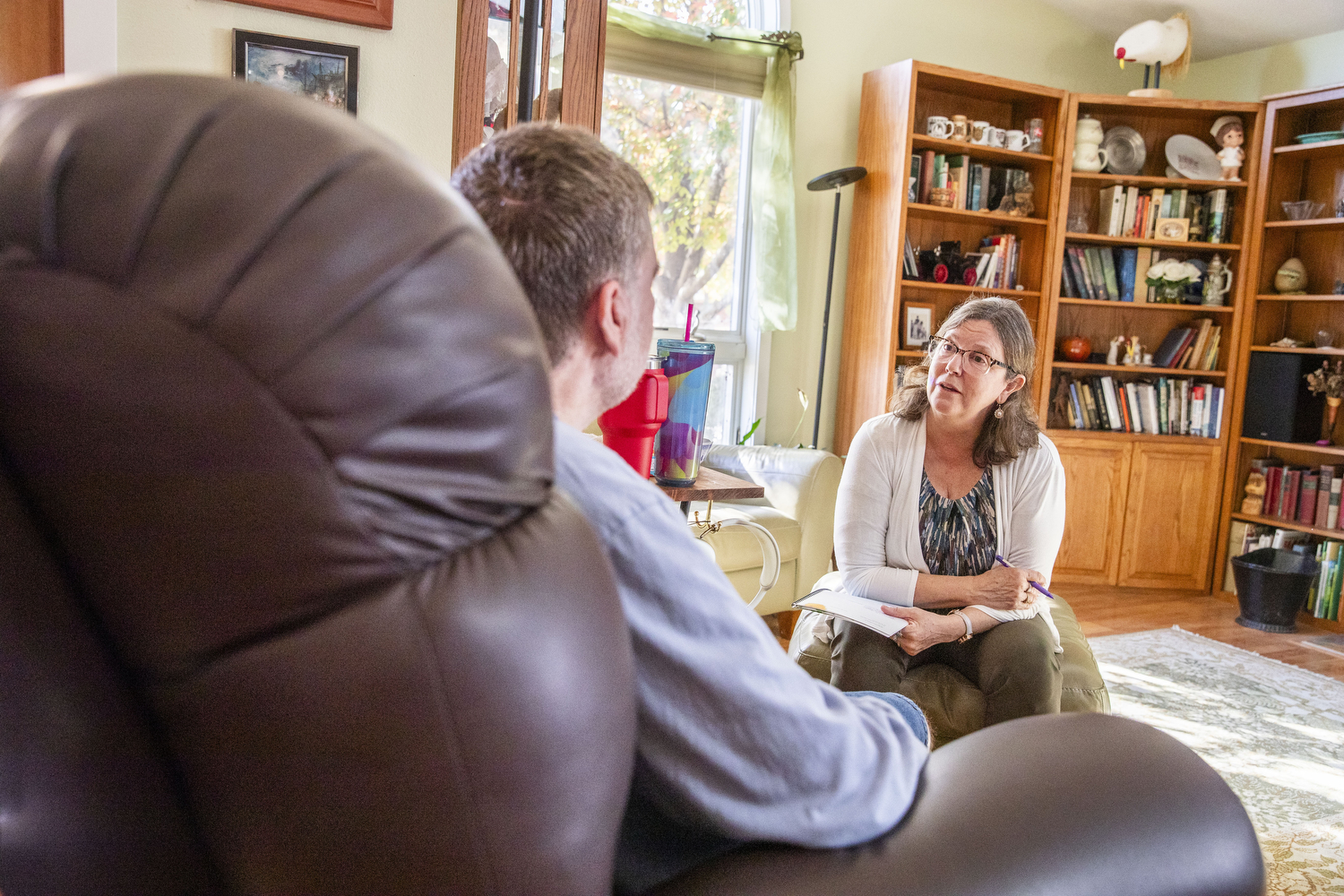Mary Kay Kusner sat on an ottoman across from Mike Bosch, who took up his usual spot on his living room armchair on Thursday, Oct. 4. Kusner leaned in toward Bosch as he spoke of his love for his oldest grandson, pointing to a photo of the two on the bookshelf.
“The first is always special,” Kusner said.
A tear rolled down Bosch’s cheek as Kusner wrote the story of the day he met his oldest grandson in a journal detailing special moments of his life.
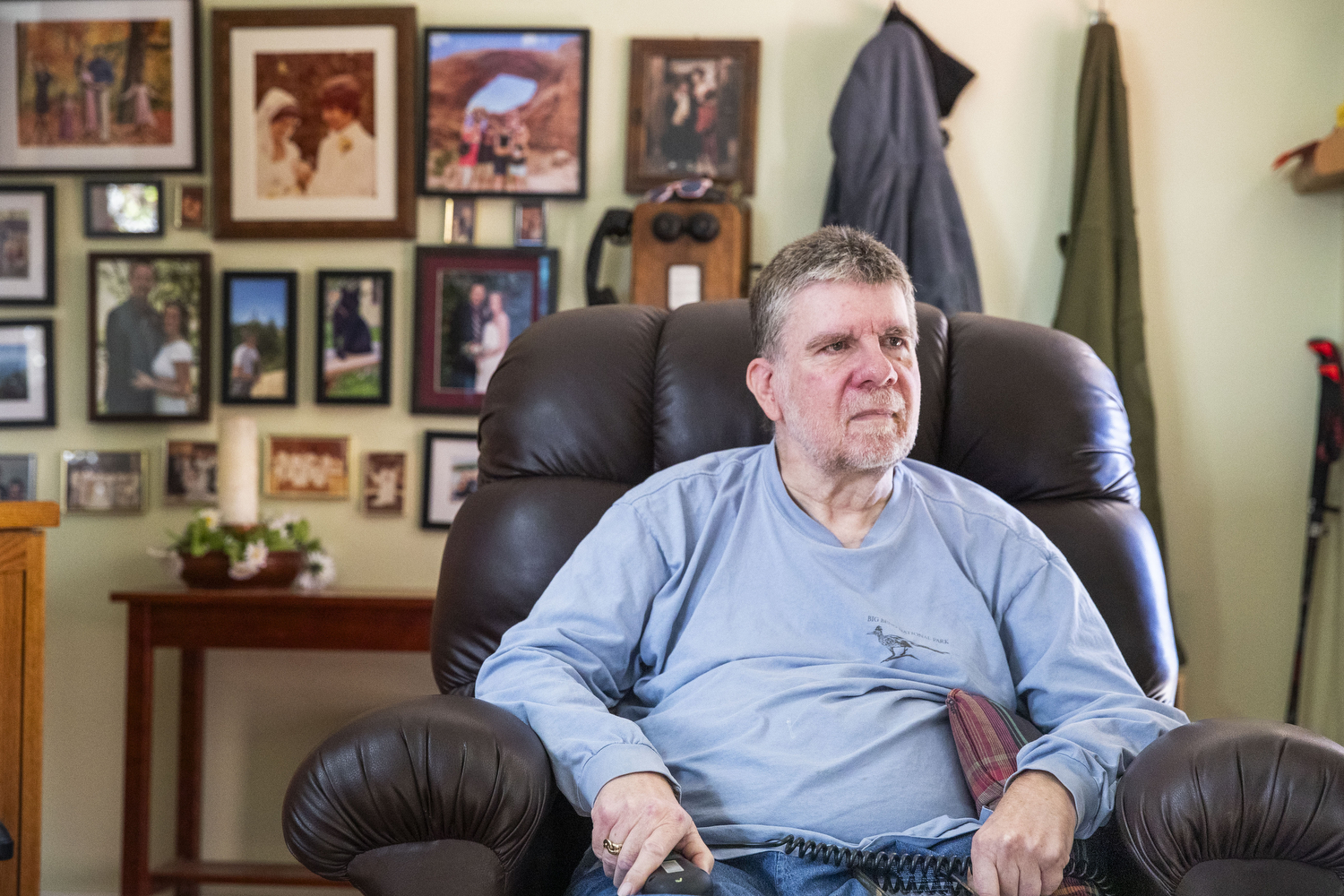
In 2019, Bosch was diagnosed with Parkinson’s disease, a typically slow-developing neurodegenerative disorder. However, when his symptoms progressed more rapidly than expected, he and his wife Joni sought a second opinion.
In March 2023, a brain MRI showed Bosch did not just have Parkinson’s but also multiple system atrophy, or MSA, a rare disease impacting the nervous system and causing nerve cell loss.
This diagnosis flipped the couple’s expectations for the future upside down. Both being retired nurses, they knew MSA would take Bosch’s quality of life rapidly, so Joni reached out to a friend for guidance — Mary Kay Kusner.
Joni met Kusner through her church, where Kusner worked as an ordained Roman Catholic Woman Priest. Outside her role in the church, Kusner served as a palliative care chaplain at the University of Iowa Hospitals and Clinics, now UI Health Care, for 30 years, retiring in the wake of the COVID-19 pandemic. In this role, she provided emotional and spiritual support and guidance for patients facing the ends of their lives and their loved ones’.
In 2023, Kusner felt called back to end-of-life care and became a certified death doula. Since then, she has worked around the Iowa City area providing comfort, care, and emotional support for those facing the ends of their lives.
During her first meeting with Mike Bosch, Kusner spoke with him about his relationship with his family and how he wants to live the rest of his life. He and Joni found comfort in Kusner’s experience and the normalization of what they were going through.
“It’s like, there’s a big pile of nerves and whatever the emotions are that are flying in, and [Mary] accepts them, and she filters out the bad stuff and just gives calm and peace back,” Joni Bosch said.
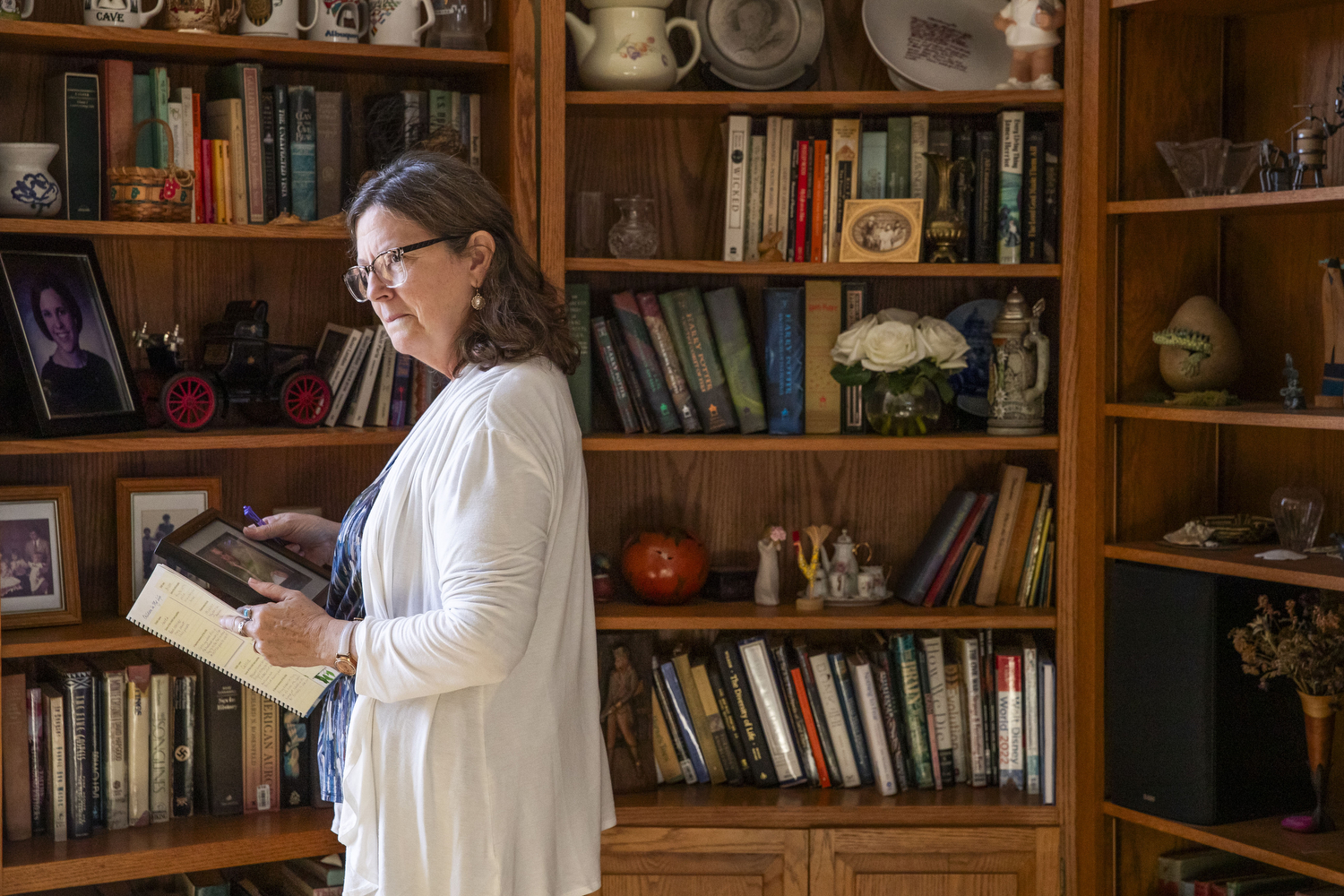
What is a death doula?
Death doulas provide holistic end-of-life support for those who are dying or facing a terminal illness. They can also counsel the loved ones of those who are dying. The list of services they can provide is extensive, largely led by the teachings of Alua Arthur, a death doula, author, and the founder of Going with Grace.
Arthur is a prominent figure in the Death Positive Movement. Members of this movement have an overarching belief that speaking openly about death and dying allows people to live more freely.
The term “death doula” was first used in the 1990s, with the term “doula” stemming from birth and postpartum care. Traditionally, this care was done by family members who cared for their loved ones at their bedsides. However, as medical care has advanced, end-of-life care has largely moved outside the home.
Annie Brownsberger, an Iowa City death doula and co-founder of the Iowa City nonprofit The Village Community, said this change has caused some people to feel disconnected from their dying loved ones.
“Like with anything else, things have gotten extremely expensive, and it’s really taken community out of death care and out of end-of-life care, and as a result, we have people who are suffering and in their grief, and they’re — they’re alone,” she said.
Brownsberger’s passion for end-of-life care came from caring for her grandmother, whom she lost to lung cancer when she was 21. Through the end of her grandmother’s life, she spent almost every hour at her bedside, ensuring she was comfortable and cared for. Brownsberger said she had no knowledge and little support in caring for the person she loved so much — but she did know the importance of comfort.
“When it came down to her final moments, I crawled in bed with her, and I pulled the blankets up over us, and I laid with her while she passed,” she said. “It was by far the most beautiful experience of my lifetime to be with someone who was there when I took my first breath when she took her last and to be held, and to know that she didn’t suffer, she wasn’t scared, she was surrounded by love was such a gift.”
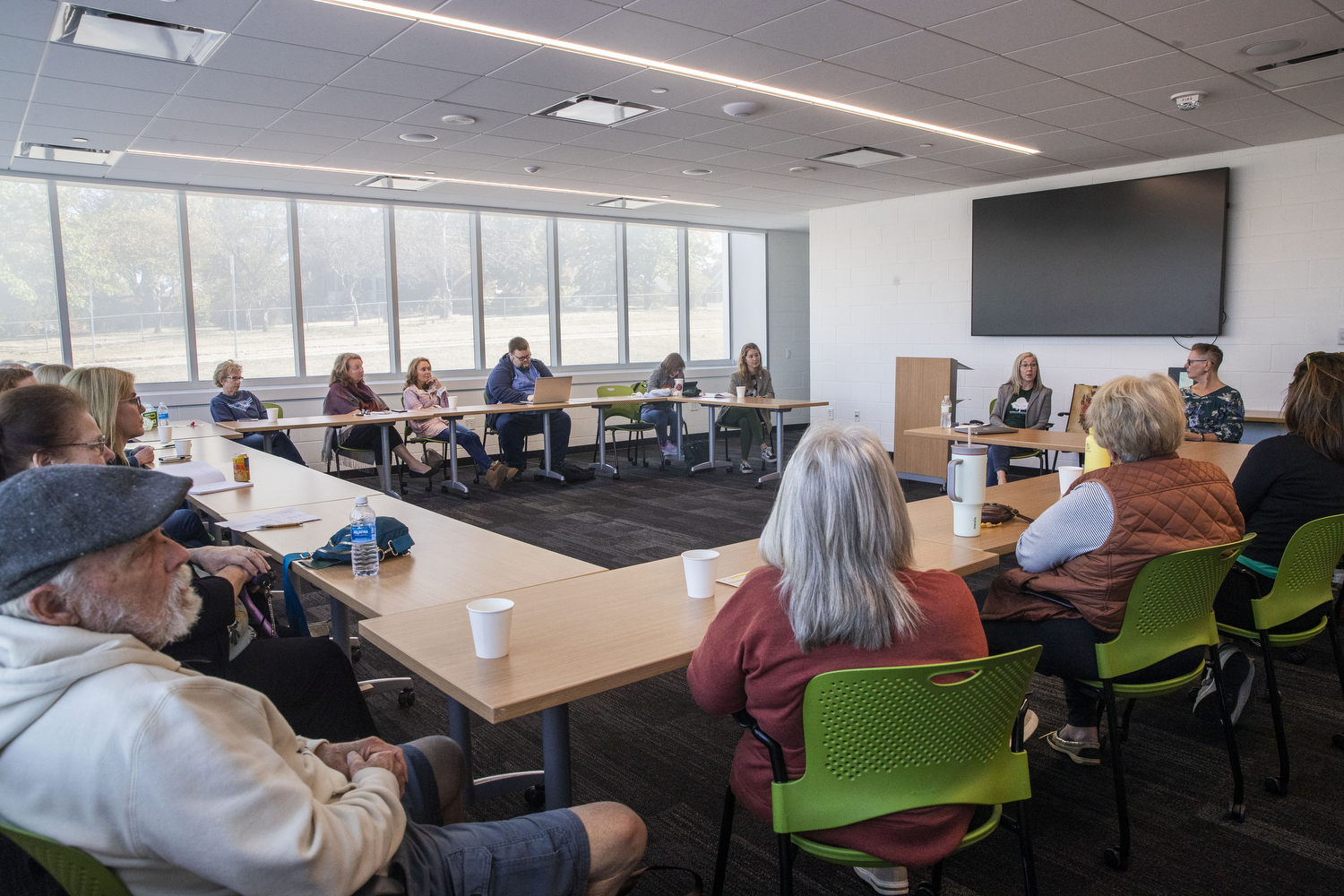
Why hire a death doula?
When considering end-of-life and palliative care, hospice is usually the first avenue of care that comes to mind.
Hospice services are free under Medicaid and focus on comfort and maintaining the quality of one’s life. This type of care can be provided in hospital outpatient clinics and in homes for people expected to live six months or less.
In 2023, the National Hospice and Palliative Care Organization released its Measures of Excellence report detailing national performance data for hospice care organizations. It was found that in 2022, primary hospice nurses had 16.43 patients on average in their caseloads.
Brownsberger said these caseloads can prevent hospice providers from providing in-depth emotional support to patients and their families. This emotional care is vital to palliative care, and another way it can be provided is through hiring a death doula.
While death doulas often work alongside hospice care providers, they differ in the fact they cannot provide medical care. Brownsberger said the relationship between death doulas and hospice is vital to the success of her work and can provide people with the care that some hospice programs do not have the capacity for.
“I would not do the work I do without hospice … I cannot prescribe the medications people need for comfort care,” she said. “When you are carrying a caseload of 30-40 and you can only see people once or twice a month, that is not sufficient … When we can partner, it is beautiful.”
Death doulas can provide a wide variety of care, and every client is different. Brownsberger said she has done eleventh-hour care, bedside vigils, affair planning, legacy planning, cleaning, and anything else someone needs to be at peace. She said she often functions as a source of knowledge, with a large part of her work being to normalize the dying process for people and their loved ones.
“I say, ‘All right, what kind of work do you want to do as an individual? Do you have a will? Do you have an advanced care plan?’” she said. “But it also might be like, ‘What do you want your legacy to be? What do you want people to remember about you? What would feel good to you to leave the people you love with? Do you want to write letters to the people that you love?’”
One aspect separating death doulas from traditional end-of-life care professionals is their ability to work with the loved ones of someone who is dying or has died. Joni Jones’ husband, Jack, died of glioblastoma in their home in 1983. He was surrounded by loved ones, including their three daughters. She struggled with the guilt of how her husband died almost 40 years before she met Brownsberger and Mary McCall, who work closely together.
Jones attended a presentation the two gave on death doulas at the Iowa City Community Center. During the presentation, she said she felt a sense of comfort in the conversation. McCall and Brownsberger spoke of end-of-life care and grief as something that can be beautiful.
Afterward, Jones approached McCall and asked to speak with her in the coming days. McCall visited her house, and they spent over an hour talking through the events of her husband’s death. Jones said she felt immediate relief from the guilt.
“I felt like I could trust [Mary McCall],” Jones said. “I talked and she listened … She was able to tell me she would not have done anything different.”
RELATED: Life Beyond Death: Funeral homes see rise in cremation, green burials in Iowa City
Over a year later, Jones still meets with McCall. The relationship sparked a passion for compassionate end-of-life care in Jones, who has since hosted a neighborhood conversation about end-of-life care in her home with the help of McCall — a conversation that she said needs to happen more.
“It is not sad or scary to talk about death … We’ve put death in the closet for too long,” Jones said.
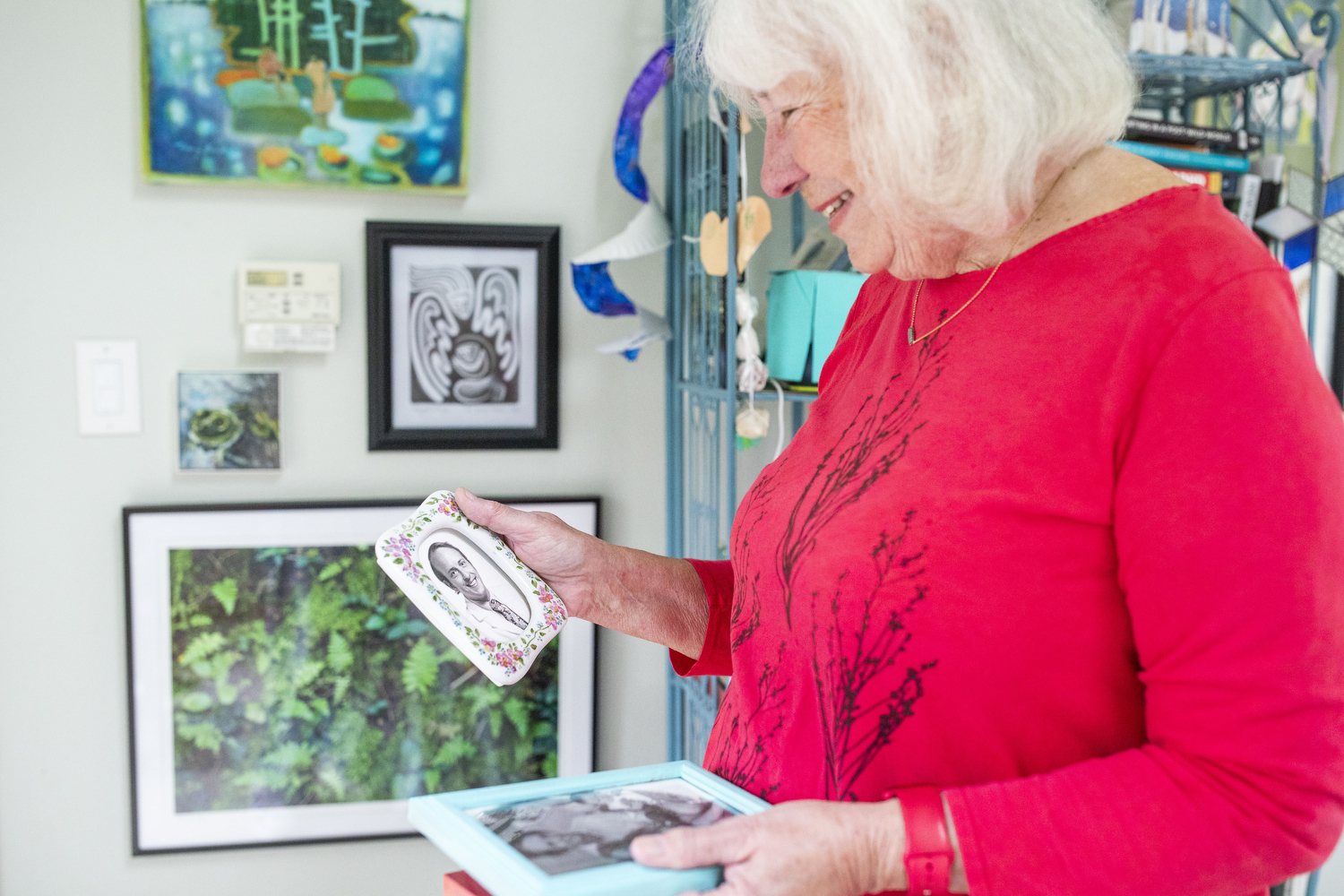
Mike and Joni Bosch said working with Kusner gave them control over their grief. She made them feel like what they are experiencing is normal.
“She creates a safe space for feelings. It’s okay to feel. It’s normal to feel, and there’s happiness and joy, even in the sorrow and loss,” Joni said. “Sometimes he cries, and I cuddle him. Sometimes I cry, and he cuddles me. And sometimes we just kind of sit together and sob together, but we know it’s okay.”
Along with taking back control of their grief, Joni said Kusner gave Mike control of his life. One way he has done this is through the decision to do Voluntary Stopping of Eating and Drinking, or VSED. VSED is a way that a cognitively capable person with a terminal condition can reduce the length of time they have to live with their condition.
“I think she’s helping him by saying, ‘Here, this is something you can do, this is something you can take control over.’ She’s giving him a little bit of a sense of self-advocacy,” she said.
Mike said he felt comfortable with Kusner from the beginning of their time working together.
“She’s really kind. You’re not embarrassed if you cry in front of her,” Mike said.
Kusner said allowing people to sit in their grief is vital to their well-beings going forward. She said one benefit of a death doula is that it will give you the tools you need to live with grief.
“I’m a fierce proponent of grief, that grief forever changes us. It is not two weeks, two months, two years,” she said. “What grief work is really promoting is a healthy relationship with those who have died.”
After months of working with Kusner to write letters to his children, complete a life journal, and spend his last Thanksgiving surrounded by loved ones, Mike plans to stop eating and drinking on Dec. 2 with the support of his loved ones.
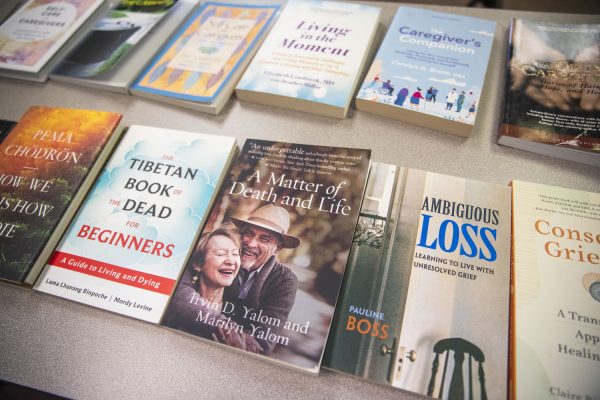
Death in American society
Death can be a touchy subject in the U.S. However, the culture around end-of-life is changing. One way this is being done is through community conversations that normalize death and dying.
Death cafes have been hosted in Iowa City by the local Senior Center since 2015 as a space for community members to talk about their experiences with death. However, interest in these conversations did not stop there. After opening its doors in September 2022, Iowa City plant-themed bar The Green House began hosting monthly death cafes.
Kimberly Jaeger-Arjes, an end-of-life doula and meditation and yoga teacher in Iowa City, is one of the death doulas who has facilitated these death cafes. She was compelled to practice end-of-life care after experiencing loss in her family. She said she hopes to see people become less afraid of death.
“A lot of our fear is rooted in death … Some of us have a mindset that we have to hold on so tightly to life … but remembering that you will die, how do we want to live presently?” she said.
Jaeger-Arjes said people often think talking about death means you will die, however, she believes it allows you to live more fully.
“The unknown will not go away,” she said. “Folks need to consider their death, and although it’s hard, and it can take you into a lot of different places. There are people that will sit with you through it and navigate it with you to be a positive experience.”
Certification and education
There is no government-required certification for end-of-life doulas, however, there are many ways one can become certified. Most commonly, death doulas can become certified through the International End-of-Life Doula Association, or INELDA, certification course.
Though it is not required, most death doulas choose to attend a certification course for the comfort of both themselves and their clients.
Organizations like Going with Grace, Life Span Doula, and the National End-of-Life Doula Alliance also provide certification programs.
Mary McCall, a death doula in Iowa City, became certified through the INELDA certification course in 2022.
She spent two weeks and around 16 hours completing the coursework, a time frame that she says is insufficient to understand the weight of the work done by death doulas. However, a licensing or certification curriculum is hard to develop when all death doulas have different strengths and services they can provide.
McCall said while technical skills, including medication knowledge and understanding of health care systems, are valuable to them, connection is vital.
“You need to feel like you can click with this person, and you’re going to be comfortable and they’re going to hear you,” she said. “How do you license that? You can’t.”
There are mixed opinions from death doulas around certification mandates. Brownsberger, who was certified through Life Span Doula and the National End-of-Life Doula Alliance, said the lack of regulation is part of the beauty of the trade.
“We’re not regulated by Medicare or Medicaid or insurance companies or funeral homes or any of that. We are here as part of the community to serve the community,” she said.
Alternatively, Kusner said that while some people think certification requirements are limiting, clients have to know they can trust their death doula.
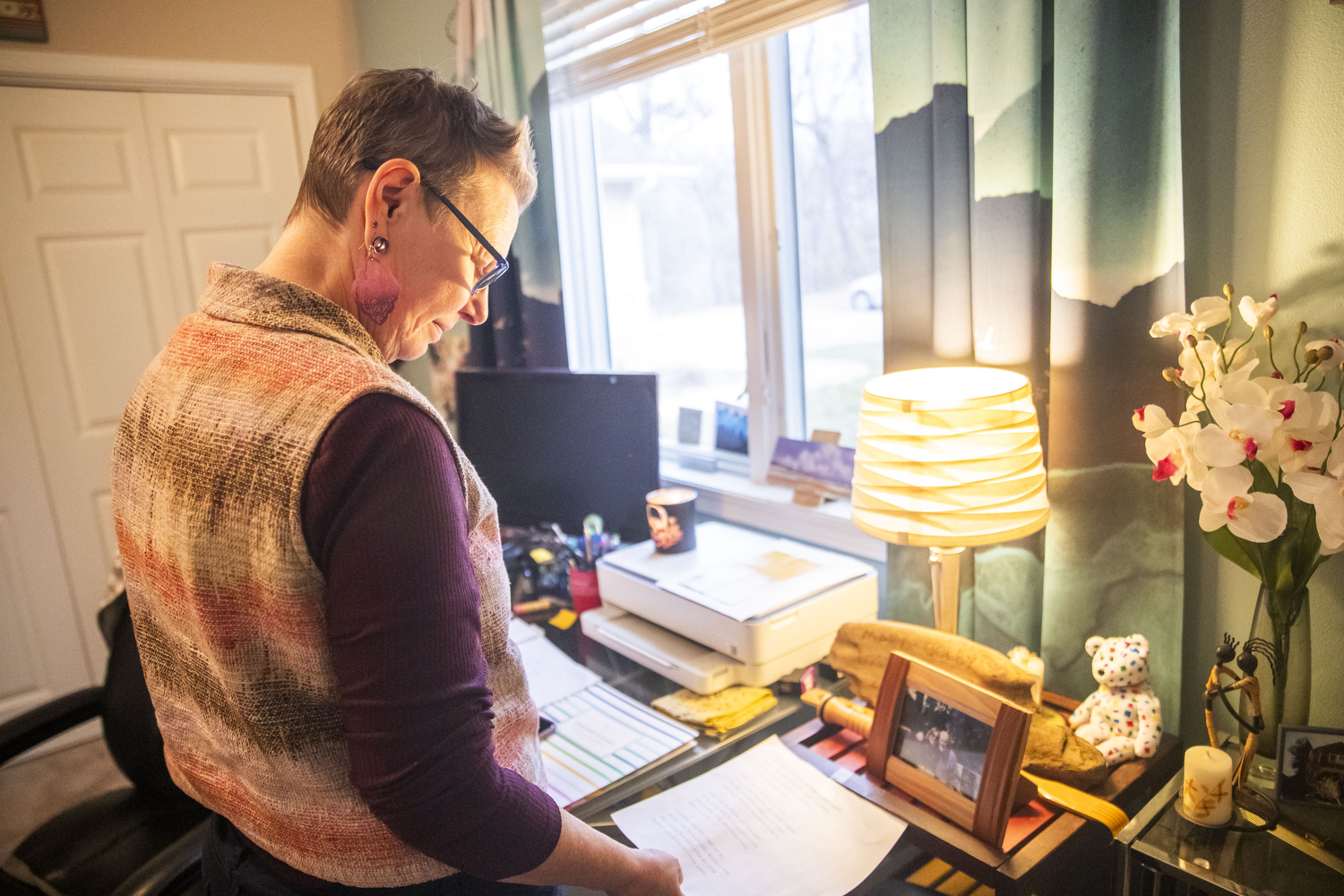
Taking on death doulaship
McCall said most death doulas feel called to their work, but that does not lessen the impact it can have on their well-beings. She said being available to clients 24/7 and working on community outreach projects is draining.
“I can’t do it 40 hours a week … I have to be really careful. It is not about quantity, but it’s about quality,” McCall said.
Brownsberger said taking care of herself is vital to her ability to help others, but the work gives her a perspective on life that not many have.
RELATED: The Green House hosts monthly space for conversations on death
“Working in death care makes me love and appreciate life. I just look around and I’m like, ‘Just take this in because it all ends,’” she said. “It allows me to be really present … At the same time, when things are just really bad, then I’m just like, ‘You know what? It all ends.’”
She said the emotional nature of her work can be taxing, and it is normal to be impacted by the grief of her clients and their families.
“It’s just really important to me to recognize when it’s my grief versus when it’s theirs,” Brownsberger said.
The cost of dying
The recent growth of holistic end-of-life care done by death doulas has created a financial gray area. Most death doulas chose the work due to personal experiences in which they felt called to improve end-of-life care.
Death doulas in the Iowa City area largely take compensation on a sliding scale. However, since there are no certification requirements, medical insurance cannot cover the cost of a death doula. Because of this, most follow a pay-what-you-can system for compensation.
Brownsberger and McCall have three base packages clients can choose from, the first being a complete package costing $2,500 for six months of unlimited support.
The extensive support services list can include advanced care planning, facilitating family meetings, providing guidance for caretakers, and aiding in daily tasks such as laundry, which cause their clients additional stress.
In addition to this, they offer a short-term package for two to four weeks of in-depth care for $1,000 and an hourly fee of $75 to $125. All of their package prices are flexible and allow for the care they provide to be accessible to those who need it.
Brownsberger said having accessible holistic end-of-life care is crucial to lifting the burden of grief in society.
“When you look at all of the mental health crises in the U.S., so much of it is just around unresolved grief,” she said. “So many other cultures know how to grieve and care for grieving people better than we do.”
Brownsberger said part of changing the relationship people in the U.S. have with grief is changing their relationship with the dying process.
“As soon as someone dies, we as a society are so eager to call the mortician and get their body out because it is gross and scary,” she said. “They’re not contaminated, they’re not unsafe, they’re not scary. It’s your beloved, it’s your mother, it’s your grandmother, it’s your child, it’s your husband, your spouse, your partner.”



